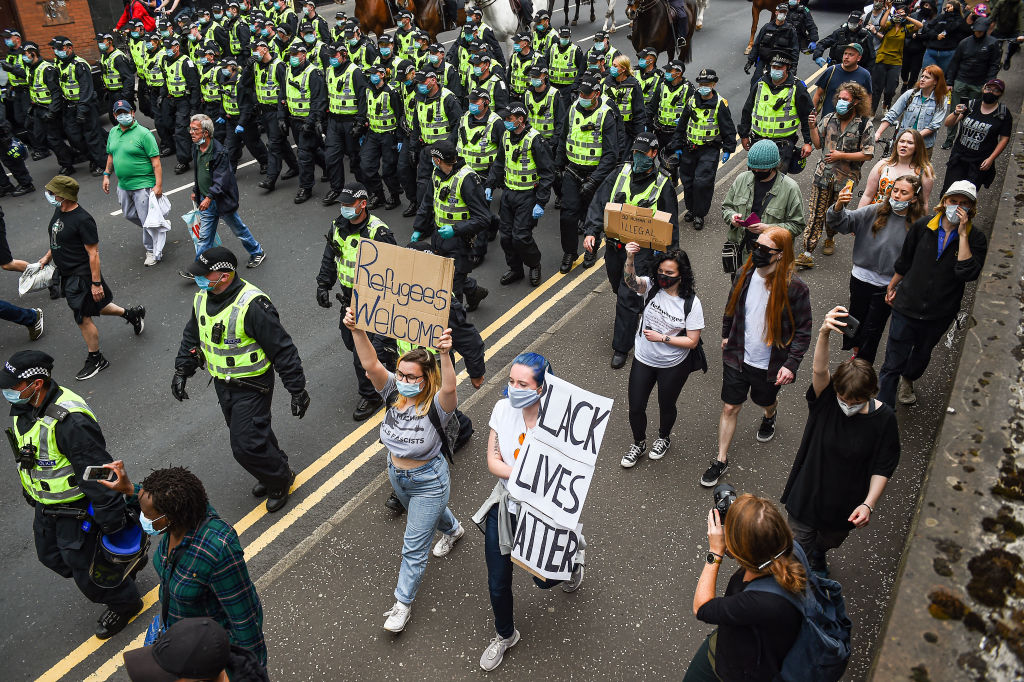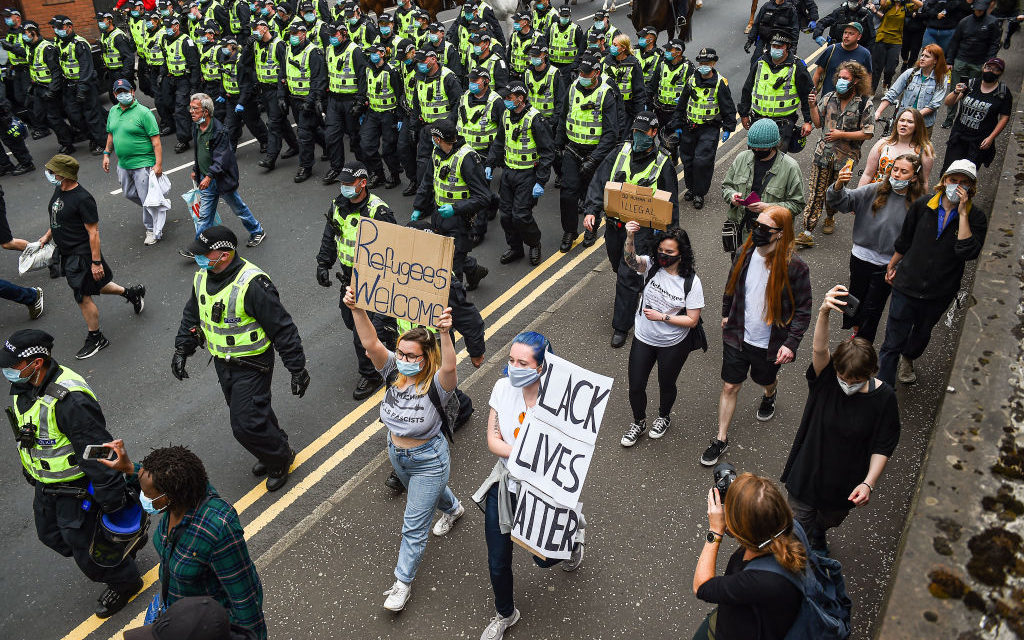
George Floyd’s treatment by the police may have sent shockwaves around the world and given new vigour to anti-racism movements globally, but it was an all-too-familiar story for many people of colour in both the US and the UK. The pressure cooker created by the Covid-19 pandemic added a heightened sense that big changes might be possible and that the issue of racism and the justice system could finally be addressed properly. However, UK Prime Minister Boris Johnson’s disappointing response to the media coverage of the Black Lives Matter protests belied the lived experience that many have spoken of, written about and brought to the attention of the media.
UK Prime Minister Boris Johnson’s disappointing response to the media coverage of the Black Lives Matter protests belied the lived experience that many have spoken of. Click To TweetAddressing institutional racism in the UK
Despite Johnson’s denials, earlier this month the Independent Office for Police Conduct (IOPC) launched an investigation to ascertain whether the police forces in England and Wales are discriminating against Black, Asian and Minority Ethnic (BAME) individuals. This came off the back of rising reports filed against British police officers, accusing them of both covert and overt forms of racism and xenophobia.
The IOPC has evidence to suggest that police powers are being used on BAME individuals disproportionately. This has a huge impact on confidence in the police within communities who have historically been on the receiving end of discrimination from authorities and service-providers, so investigations are attempting to identify the presence and causes of institutional forms of racism in the UK’s criminal justice system. The IOPC’s goal is to conduct a review of a range of cases to gain a more thorough understanding of the problem, but this is a long and nuanced process.
A historic problem
The news that police forces in England and Wales are being investigated will come as no surprise to anyone who is aware of the history of racial discrimination among British police. Over the last few decades, Black and minority-ethnic communities have highlighted problems with the way the justice system treats them, and there have been a number of investigations which have, thus far, failed to fully address and resolve these issues.
One of the most notorious was in response to the Brixton Uprising of 1981, which broke out as a response to heavy-handed stop-and-search tactics used by the police in Black communities. The incident that precipitated the violence was a maelstrom of rumour and misunderstanding, but the circumstances that led to the protests occurred in a political tinderbox in which Black communities were marginalised and persecuted.
The public enquiry that followed was covered in the Scarman Report, which found that there was overwhelming evidence that the police were targeting Black people with their powers of ‘stop and search.’ The recommendations from the report led to the police code of conduct that was included in the Police and Criminal Evidence Act of 1984 and the foundation of the Police Complaints Authority in 1985. Recommendations included attempting to recruit more BAME officers into the police, to improve training and to make positive attempts to build relationships with the local communities.
Then-Prime-Minister Margaret Thatcher dismissed concerns that unemployment and racism were responsible for the situation, ignoring the 55% unemployment rate among young Black individuals. This denial paved the way for riots in Liverpool later that summer. Brixton erupted again in 1985 and 1995, evidence that many of the issues had not been addressed.
Decades of inaction
The MacPherson Report released in 1999 in response to the Stephen Lawrence enquiry specifically mentioned that the recommendations which were made in the wake of the Brixton Uprising had been ignored. It also questioned some of the conclusions drawn in the Scarman report. The MacPherson Report grabbed headlines, describing the police for the first time as ‘institutionally racist.’
Further unrest came in the wake of Mark Duggan’s death at the hands of the Metropolitan police, after which yet another report cited the discriminatory approach of the police when using their stop and search powers in the community.
Despite the findings of these enquiries, progress toward ending racial discrimination in the police has been relatively slow, and much more recent investigations into the issue have found that it still has its grips on Britain’s criminal justice system. In 2017, Labour MP David Lammy conducted and published a report into the ongoing presence of racism in the British police. The Lammy Review gave a series of recommendations aimed at helping eliminate racism within the police, but this headway is now under threat once again, and yet another generation of BAME British citizens and community members is suffering.
A government in denial
England and Wales continue to be governed by a party whose leader has long been in favour of the problematic stop-and-search policy, which Johnson has supported and even championed during his leadership campaign. He has reverted some of the changes that were made to the laws in the wake of incidents in the past, despite recommendations from Sir Thomas Windsor, Her Majesty’s Chief Inspector of Constabulary.
Even very recent examples of policing indicate a disparity in the way in which white and non-white people are approached by officers. Statistics from the National Police Chiefs’ Council state that BAME individuals have been 1.6 times more likely to be fined for breaching lockdown rules, for instance.
The overt dismissal of the inherent racism at play is threatening to undermine the limited progress made over the past four decades. It is vital that the UK government take decisive action in order to address serious institutional problems in its police force and preserve harmony.
The overt dismissal of the inherent racism at play is threatening to undermine the limited progress made over the past four decades. It is vital that the UK government take decisive action in order to address serious institutional… Click To Tweet


















